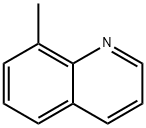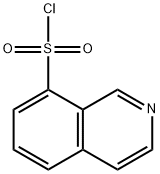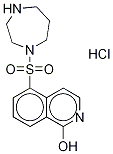A7095012
Quinaldine , 98% , 91-63-4
Synonym(s):
2-Methylquinoline;Quinaldine
CAS NO.:91-63-4
Empirical Formula: C10H9N
Molecular Weight: 143.19
MDL number: MFCD00006756
EINECS: 202-085-1
Update time: 2022-07-08
PRODUCT Properties
| Melting point: | -2 °C |
| Boiling point: | 248 °C |
| Density | 1.058 g/mL at 25 °C(lit.) |
| vapor pressure | <0.1 hPa (20 °C) |
| refractive index | n |
| Flash point: | 175 °F |
| storage temp. | Store below +30°C. |
| solubility | chloroform: soluble(lit.) |
| form | Crystalline Powder |
| pka | 5.83(at 20℃) |
| color | White to slightly yellow |
| PH | 6.9 (H2O, 20℃)(saturated aqueous solution) |
| Water Solubility | PRACTICALLY INSOLUBLE |
| Sensitive | Light Sensitive |
| Merck | 14,8047 |
| BRN | 110309 |
| Stability: | Stable, but may be light sensitive. Combustible. Incompatible with strong oxidizing agents. |
| LogP | 2.59 |
| CAS DataBase Reference | 91-63-4(CAS DataBase Reference) |
| NIST Chemistry Reference | Quinoline, 2-methyl-(91-63-4) |
| EPA Substance Registry System | Quinaldine (91-63-4) |
Description and Uses
It is an anaesthetic used in fish transportation. Used in preparation of oil-soluble dyes. Also used in anti-malaria drugs, in manufacturing dyes, food colorants , pharmaceuticals and pH indicators.
Safety
| Symbol(GHS) |   GHS07,GHS08 |
| Signal word | Warning |
| Hazard statements | H302+H312-H315-H319-H341-H412 |
| Precautionary statements | P273-P280-P301+P312-P302+P352+P312-P305+P351+P338-P308+P313 |
| Hazard Codes | Xn |
| Risk Statements | 21/22-68-36/37/38 |
| Safety Statements | 36-45-36/37/39-26 |
| RIDADR | NA 1993 / PGIII |
| WGK Germany | 3 |
| RTECS | UZ9625000 |
| F | 8-23 |
| TSCA | Yes |
| HS Code | 29334990 |
| Toxicity | LD50 orally in rats: 1.23 g/kg (Smyth) |






